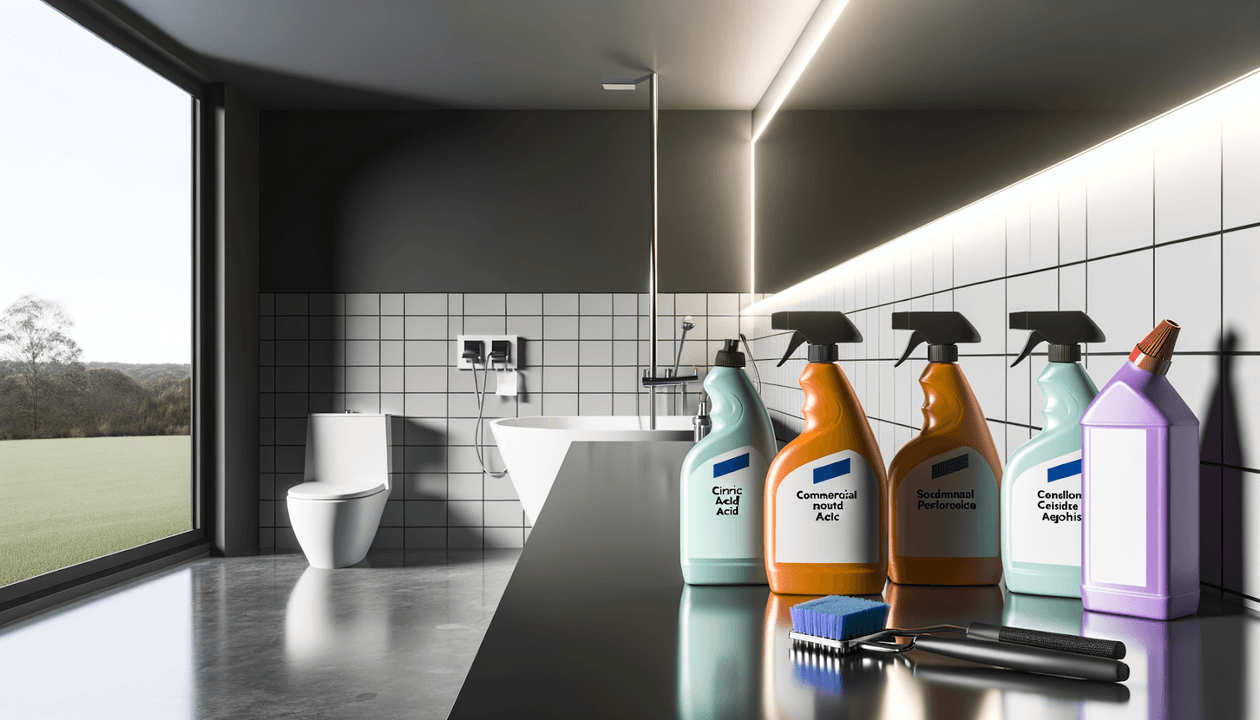
Top 5 Commercial Bathroom Cleaning Chemicals for Heavy-Duty Cleaning
G'day, mates! If you're struggling to keep your bathroom squeaky clean, especially in a high-traffic or commercial setting, then you're in luck. Today, we’re diving into the world of bathroom cleaning chemicals, focusing on the heavy-duty players that tackle dirt, mould, and grime with ease. It’s something we can all relate to—keeping our spaces clean with minimal effort.
Why the Right Bathroom Cleaning Chemicals Matter
In our modern, bustling lives, maintaining hygiene is crucial, and using the right chemicals is key not just for effectiveness, but also for preserving your bathroom’s esteemed surfaces. Here’s a look at some chemical heavyweights you should consider, plus some helpful safety tips.
Chemicals in the Spotlight
1. Citric Acid
This wonder substance is a fantastic helper in cleaning solutions, effectively dealing with grime and grease. Similar to vinegar, it’s generally safe for most surfaces if used correctly as per the packaging instructions. Remember, it’s vital to work in a well-ventilated area and avoid mixing with other chemicals like ammonia to prevent harmful gases. Think of citric acid as the quieter, safe choice that consistently gets the job done.
2. Sodium Percarbonate
If you're looking for a softer alternative to bleach, sodium percarbonate is your mate. Found in products like OxiClean, it’s perfect for a deep clean without being overly harsh. Just let it sit for about 10 minutes to allow proper sanitation. It’s the kind of product to rely on for its thoroughness, especially over repeated use.
3. Tetra-alkyl Ammonium Halides
These compounds are the secret heroes in your antibacterial arsenal. They’re broadly effective against bacteria and viruses without the obnoxious smells. The lack of strong scent and their affordability make them perfect for regular use in commercial settings.
4. Hydrochloric Acid
Now, here’s one to wield with care! Hydrochloric acid is powerful, ideal for rust stains and hefty cleaning tasks. But, it requires careful handling: you’ll need gloves, goggles, and a well-ventilated area to avoid dangerous effects. This is suited for specific situations where nothing else will quite cut it.
5. Ethanol and Isopropanol
Known as trusty disinfectants, these alcohols are commonly found in hand sanitisers but work wonders in bathrooms too. They’re great at covering a wide range of germs when part of your routine cleaning toolkit and incredibly safe when used as directed.
Safety Protocols for Chemical Use
General Safety Tips
- Follow Instructions: No shortcuts here. Stick to the label’s instructions for safe use.
- Personal Protective Equipment (PPE): Gloves are a non-negotiable; consider goggles for strong acids.
- Ventilation: Open a window or keep the fan on to avoid inhaling fumes.
- Never Mix Chemicals: Stick to single-use to prevent hazardous reactions.
Specific Safety Considerations
Bleach Safety: Handle with caution. Use the exact amounts, maintain robust ventilation, and promptly address any symptoms of illness by seeking help.
Post-Cleaning Precautions: Even with gloves on, wash your hands after cleaning to avoid any lingering chemical impacts.
Choosing the Right Cleaner
All-Purpose vs. Dedicated Cleaners
All-Purpose Cleaners: Useful on non-porous surfaces. Handy for everyday use but sometimes need specialised support.
Dedicated Cleaners: Tailored for specific jobs like toilet bowls, tackling tougher stains, ensuring that every nook and cranny is gleaming.
Disinfectant Properties Matter
Germ-hotspot bathrooms benefit from cleaners with solid disinfectant properties. Confirm these cleaners are approved by Aussie health authorities for peace of mind.
Surface Compatibility
Make sure your choice of cleaner is gentle on your surfaces. Harsh bleach, for instance, is best for non-porous surfaces; avoid using it on stone counters or other delicate finishes.
DIY Cleaning Solutions
If you fancy giving the DIY route a crack, here are some recipes to try:
All-Purpose Cleaner
- 1/4 cup white vinegar
- 10 drops essential oil
- 1 teaspoon dish soap
- 2 cups water
Glass Cleaner
- 1 cup white vinegar
- 1 cup water
- 3 drops essential oil
Tile Cleaner
- 1 gallon water
- 1/2 cup rubbing alcohol
- 1/2 cup distilled white vinegar
- 2 drops dishwashing liquid
- 3 drops essential oil
Grout Cleaner
- 3/4 cup baking soda
- 1/4 cup hydrogen peroxide
- 1 tablespoon mild dish soap
Conclusion
So there it is, enriching your cleaning arsenal with the top commercial bathroom cleaning chemicals for a spotless bathroom! Remember to choose the right chemical for the job, adhere to safety protocols, and if you're feeling adventurous, try a DIY solution. Cleaning isn’t just a chore—it’s the start of maintaining a clean, healthy lifestyle. So toss on those gloves and let these products do the hard yakka for you!
